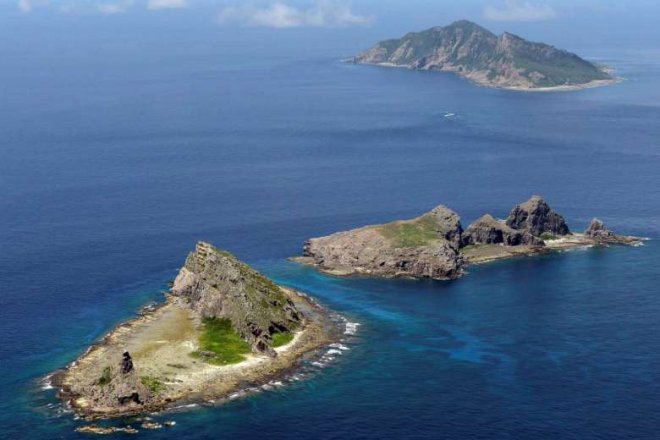
The first series of comments from new US defence secretary Jim Mattis over the festering East and South China Sea conflicts drew sharp response from Beijing, renewing tensions between the global superpowers. While Mattis said China was "shredding the trust of nations in the region with its aggressive behavior, Beijing retorted saying US was destabilizing East Asia.
"The Diaoyu Island and its adjacent islets have been an inherent part of Chinese territory since ancient times, which is a unchangeable historical fact," Chinese Foreign Ministry spokesman Lu Kang said after Mattis' statement that the island was covered by the US-Japan military accord.
China and Japan have claimed for centuries that the islands known as Senkaku in Japan and Diaoyu in China are part of their territories. The rich fishing atoll became a point of contention between Tokyo and Beijing when China challenged Japan's authority over the islands in 1970.
The escalated dispute has led to increased military spending by Japan and China in recent years. The Japanese defence ministry said last February it doubled the number of F-15 fighter jets in the southern island of Okinawa, which is close to the disputed Senkaku islands in the East China Sea.
Mattis said he did not think it was necessary for the US to increase military activity in the region but insisted that Beijing had a heavy handed approach. "China has shredded the trust of nations in the region, apparently trying to have a veto authority over the diplomatic and security and economic conditions of neighbouring states," he said.
He also said the US commitment to Japan would stand firm for years to come. "The U.S.-Japan alliance is critical to ensuring that this region remains safe and secure – not just now, but for years to come," he said at a joint press conference with Japanese Defense Minister Tomomi Inada in Tokyo.
"I made clear that our long-standing policy on the Senkaku Islands stands -- the US will continue to recognise Japanese administration of the islands ... And as such Article 5 of the US-Japan Security Treaty applies," Mattis said.
In sharp comments later, China repeated its firm claim over the Senkaku islands. "We urge the US side to take a responsible attitude, stop making wrong remarks... and avoid making the issue more complicated and bringing instability to the regional situation," the foreign ministry spokesman said.
Resource rich island
In 2004, China started developing four gas fields in East China Sea, following which both sides decided to set up a joint development region but a resolution has never been reached.
A major point in the increasing escalation in the conflict was in 2012 when Japan bought three of the islands from private owners and nationalised them. China responded by increasing its military presence in the region and more frequent violations of Japan's territorial waters.
In December 2015 Japan confirmed it was setting up anti-ship, anti-aircraft missile batteries on 200 islands in East China Sea and increasing the number of military personnel on these islands to around 10,000 over five years.









